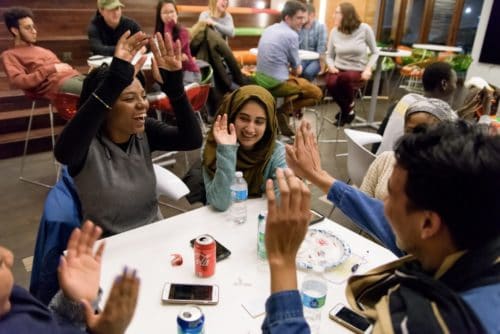Blog by Nic Zacharewski ’23 Chronicles Summer Internship at German Cancer Research Center
In a perfect convergence of his Trinity College majors in neuroscience and German, Nic Zacharewski ’23 is spending his summer as a brain cancer research intern at a lab in Heidelberg, Germany. Zacharewski said that he believes his research experiences in Trinity’s Interdisciplinary Science Program (ISP) as a first-year student played a part in landing him the summer internship with the German Cancer Research Center (Deutches Krebsforschungszentrum), which is associated with the University of Heidelberg.
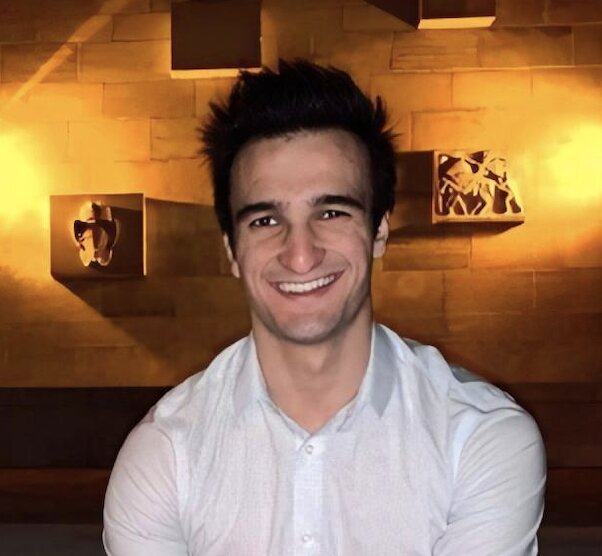
To earn Trinity credit for the internship, Zacharewski is supervised by Science Center Director Alison Draper, who also leads Trinity’s ISP. He also has worked with Lecturer in Language and Culture Studies Julia Assaiante to create a personal blog chronicling his time in Germany, called My Heidelberg Stories. “[I hope] to encourage other language-STEM students to consider pursuing international opportunities,” Zacharewski wrote in the blog’s introduction.
Originally from Holt, Michigan, Zacharewski has been pursuing his goal to become a neurosurgeon since high school, when he started with summer research in the Department of Biochemistry & Molecular Biology at Michigan State University. In his first year at Trinity, Draper placed him in a neurology research position at Hartford Hospital, where he learned about tumor biology. Soon after, Zacharewski began working with the Neurosurgery Department, where he learned the molecular and clinical understandings of brain tumors.
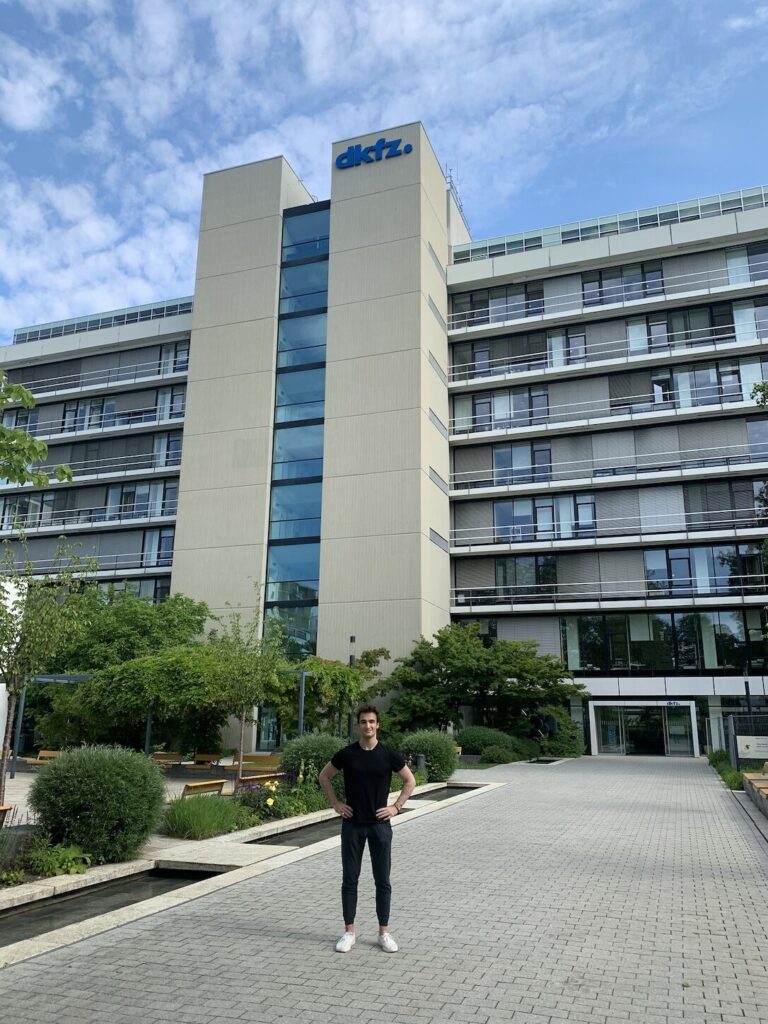
Zacharewski’s parents and professors always encouraged him to pursue opportunities to study abroad. When a study abroad semester during the school year didn’t seem possible, he began to look into labs around the world for a summer internship. Since he had been studying the German language since the seventh grade—when French and Spanish classes were full—he thought Germany would be an ideal destination. “I came across the lab of Dr. Christiane Opitz at the German Cancer Research Center,” Zacharewski said. “Dr. Opitz’s research leveraged my previous research experience while satisfying my interest in brain tumors. The fit seemed perfect.” An email and resume sent out on New Year’s Eve earned a reply three days later with a question asking how long he wanted to work in the lab.
Together with Assaiante, his German course instructor at Trinity, Zacharewski developed the idea to write about his summer experiences for a blog hosted on the Language and Culture Studies website. Assaiante said, “Nic really wanted his experience to open doors for other Trinity STEM students, who might not consider internships, study abroad, and professional opportunities outside the U.S. This impulse was fortuitous, as it enacts precisely the balance of academic and experiential learning our new curriculum is based upon. We brainstormed ways in which we could communicate his experiences living and working in Germany this summer to Trinity students, and the idea of a blog/travelogue was born.”
Draper added, “Nic has taken maximal advantage of all the opportunities that Trinity has to offer. He had an early start to research through ISP, carved out time to study language, and has found a really clever way to combine his interests this summer.”
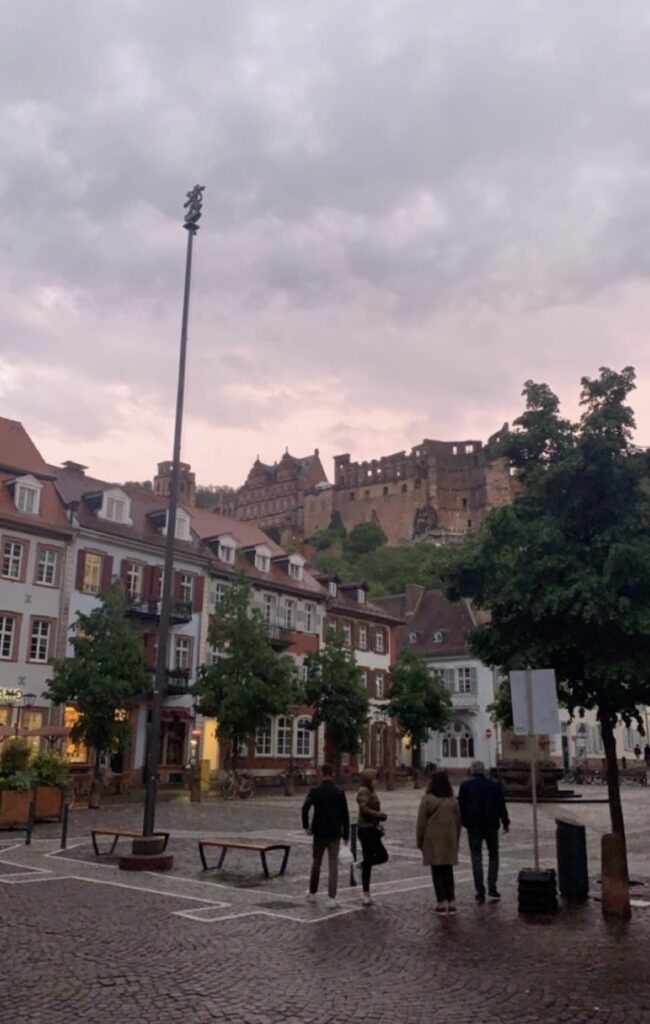
The blog features updates from Zacharewski, a photo gallery of images from around Heidelberg, a way to contact him to ask questions about the experience, and a section dedicated to his “mishaps” in Germany, which offers lighthearted lessons about cultural misunderstanding and learning to adapt to new situations. “The best way to learn and prepare for this environment is just to be in it,” he said.
Every day in the lab is different for Zacharewski, but includes some combination of setting up and running experiments, enjoying lunch, coffee, and German chocolates with colleagues, and completing any necessary reading and writing. The accommodations at the University of Heidelberg are close to the city’s cafes and restaurants. “There are always lots of outdoor activities, with the river and park nearby,” he said.
Zacharewski said he’s already learned a lot this summer, both inside and outside of the lab. “It’s enriched my understanding of Germans and German culture,” he said. “In the lab, it’s been a great opportunity to grow and learn. These people are incredibly talented scientists and I ask questions every day.”
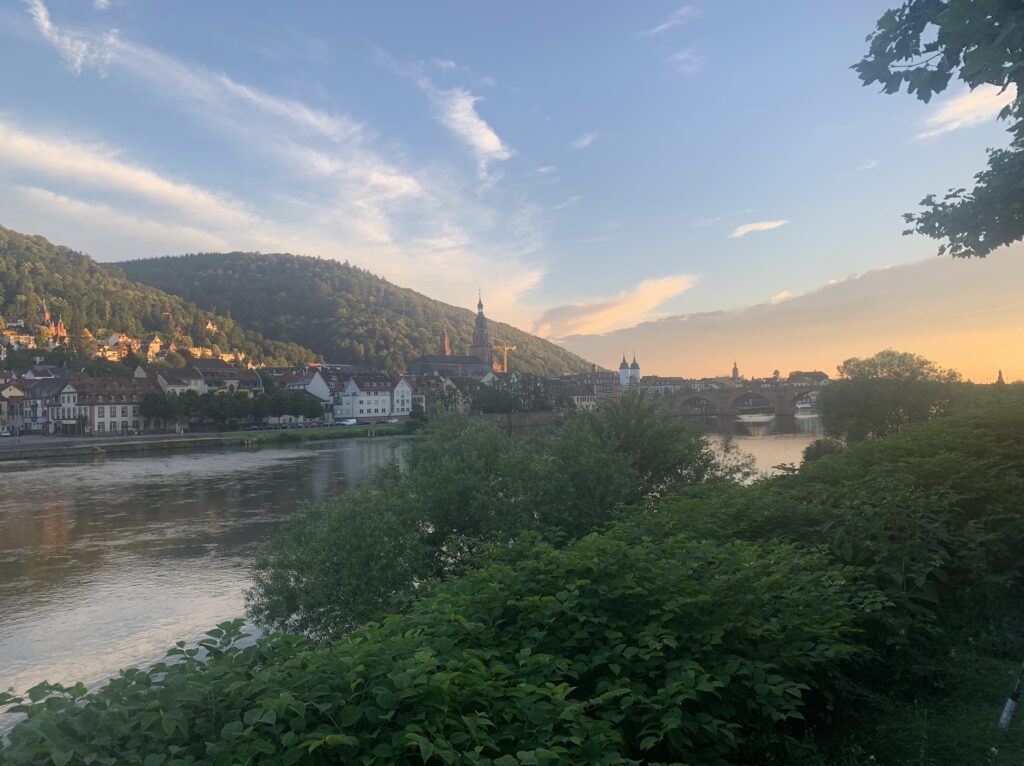
This time in Heidelberg will leave an impact on his studies at Trinity going forward. “It will benefit me in multiple ways,” Zacharewski said. “It will help as I continue learning the German language, especially after speaking it in real interactions. It also gives me a new perspective and focus in neuroscience that I may not have gotten until much later, or maybe not at all.”
After graduating from Trinity, Zacharewski plans to go to medical school to pursue a career in neurosurgery. “This experience provides a strong foundation and is unique. It’s something I’m super thankful and grateful for, and I think it will really help me achieve the goals I’ve set for myself. I had to learn a lot in a short amount of time and I’ve developed more as a student and as a person because of it,” he said. “Anyone can find this kind of opportunity. You never know what’s going to happen; I reached out to this lab on New Year’s Eve, and here I am.”
